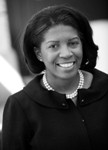Syndicated
Cuccinelli, Campaign for Liberty, and shifting GOP party politics
I have written a bunch about the role of Ron Paul supporters in the party and the impact that John McCain’s military supporters may have. Yesterday, I went to the convention of the Republican Party of Virginia. The only seriously contested race was for the nomination for Attorney General. State Senator Ken Cuccinnelli, the candidate of grassroots conservatives, was the most likely winner, given who normally attends a state party convention. And indeed he won.
However, many people were shocked that he won on the first ballot over John Brownlee, former US Attorney, and Dave Foster, a Republican who sits on the Arlington County School Board. When I drove down to Richmond for the convention, I certainly did not expect that result either.
But when I got to the convention floor on Saturday, it was clear what was going on. The Virginia chapter of the Republican Liberty Caucus had endorsed Cuccinelli. They were out in force. From eyeballing, people identified with either the Republican Liberty Caucus or the Campaign for Liberty seemed to be about 10-15% of the convention. They pushed Cuccinelli over the top. I think that this marks a pattern for the future of the GOP in smaller caucuses and conventions.
During the 2008 Republican Presidential primary, Paul supporters were highly organized and were able to effectively impact events smaller events like lower-profile caucuses. They got close to taking over state parties like Missouri, Nevada, and Idaho. Many more state parties were concerned with how to manage the situation. Ultimately, however, Ron Paul supporters did what you are supposed to do in politics. They brought new people to the process and organized them.
The question remained whether these outsiders would stay organized and be integrated into the GOP in some form.
This weekend in Richmond, they did. They found legitimate reasons to support the candidate whose supporters would probably constitute a near majority of a Virginia GOP convention anyways. Tom Tinker from the Campaign for Liberty used strong language:
I had the privielege of attending the VA Republican Convention this past weekend. Though I am usually wary of Republicans and their so-called "conservatism", I left the convention with a new hope for the restoration of Constitutional principles in my home state of Virginia. Bob McDonnell and Bill Bolling, the two nominees for Governor and Lieutenant Governor, are good candidates, and though wishy-washy when it comes to their conservatism, are far better than anyone the Democrats could put up. But the candidate for Virginia Attorny General, Ken Cuccinelli, restored my hope in the GOP, and should give all Virginians a hope for bringing our state back to Constitutional roots, both state and national. I will support him 100% these next few months, and I encourage you to do so.
A lot of people in Washington argue whether libertarians and social conservatives can be in the same party. Operationally, the activists were. And together they carried the day and shaped the GOP. Whether they represent a broader range of voters, we shall see. But the activists did execute this coalition. And RLC/CfL/Ron Paul supporters are likely to continue to hold an important swing role in party contests like this.

